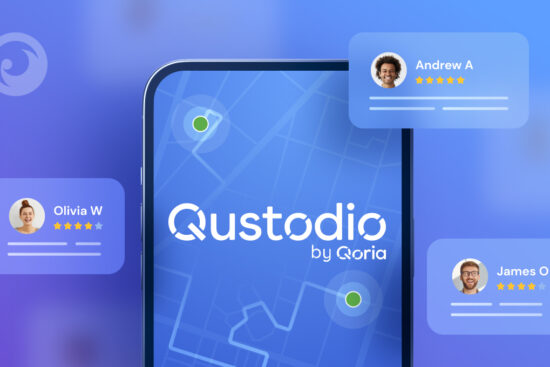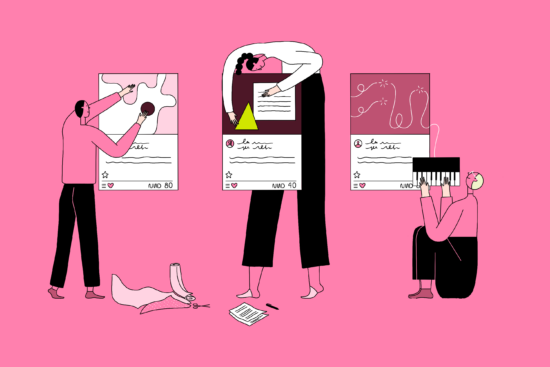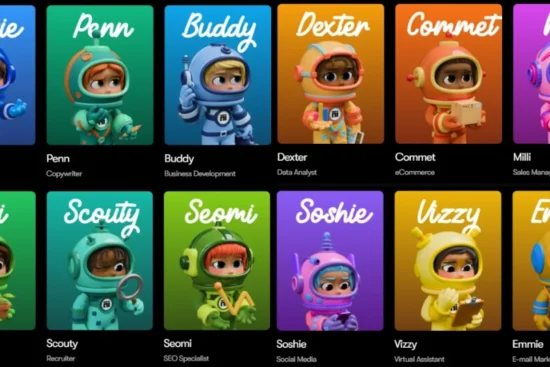
The healthcare industry is undergoing a seismic shift as two powerful fields—biotechnology and artificial intelligence (AI)—merge to redefine how we approach diagnostics, treatment, and disease prevention. This convergence is accelerating breakthroughs that were once unimaginable, offering solutions to longstanding medical challenges and shaping the future of healthcare.
Biotechnology involves using biological systems, organisms, or derivatives to develop medical products and treatments. AI, on the other hand, leverages computational power to analyze data, learn patterns, and make predictions or decisions. Together, they form a synergy that is not only transforming medicine but also reshaping how we perceive human health.
Revolutionizing Diagnostics
One of the most impactful areas where biotechnology and AI intersect is in diagnostics. Early and accurate diagnosis is critical for effective treatment, and this is where AI-powered tools combined with biotechnology have made significant strides.
AI in Genomics and Molecular Diagnostics
Advancements in genomics have enabled researchers to decode the human genome, opening doors to personalized medicine. AI algorithms can analyze vast genomic datasets with unparalleled speed, identifying mutations linked to diseases like cancer or rare genetic disorders. For instance, machine learning models help identify biomarkers—indicators of specific diseases—more accurately than traditional methods.
Image Recognition and Radiology
AI-powered image recognition tools, like those used in radiology, are becoming increasingly adept at detecting diseases such as cancer, tuberculosis, and neurological disorders. Biotechnological advances in imaging agents and contrast materials further enhance the precision of AI algorithms. A notable example is the use of AI in mammography, where it helps radiologists detect subtle signs of breast cancer that might otherwise be overlooked.
Transforming Drug Discovery
The drug discovery process, traditionally spanning over a decade and costing billions of dollars, is being revolutionized by the integration of AI and biotechnology.
Streamlining Preclinical Research
AI-driven models can predict how drugs will interact with biological targets, significantly reducing the trial-and-error approach traditionally associated with drug development. By analyzing massive datasets from biotechnological research—such as protein structures, metabolic pathways, and disease mechanisms—AI identifies promising drug candidates faster.
Accelerating Clinical Trials
Clinical trials, a critical phase in drug development, benefit immensely from AI. Algorithms can analyze patient data to identify suitable participants, ensuring trials are more efficient and diverse. Additionally, wearable biotechnology devices provide real-time health data, offering insights into drug efficacy and safety during trials.
Case in Point: mRNA Vaccines
The rapid development of mRNA vaccines for COVID-19 is a prime example of this synergy. AI tools accelerated the design of mRNA sequences, while biotechnological platforms facilitated their production and delivery. This collaboration compressed years of research into months, saving millions of lives.
Advancing Personalized Medicine
The goal of personalized medicine is to tailor treatments to individual patients based on their genetic, environmental, and lifestyle factors. The intersection of AI and biotechnology is making this vision a reality.
Genetic Profiling and AI
Biotechnology provides the tools to sequence a patient’s genome, while AI analyzes this data to predict health risks and recommend personalized interventions. For example, companies like 23andMe offer genetic testing services that identify predispositions to conditions such as Alzheimer’s or heart disease. AI then translates this data into actionable insights, empowering patients to make informed health decisions.
Customized Therapies
AI-powered platforms are helping design biologics—drugs derived from living organisms—that target specific molecules in a patient’s body. This approach is particularly impactful in cancer treatment, where immunotherapies like CAR-T cells are engineered to attack cancer cells with precision.
Enhancing Patient Care
The patient experience is being transformed by AI-driven tools and biotechnological innovations that make healthcare more accessible, efficient, and effective.
Telemedicine and Remote Monitoring
AI chatbots and virtual assistants powered by biotechnology platforms are revolutionizing telemedicine. Patients can describe symptoms, and AI algorithms analyze the data to suggest potential diagnoses and treatments. Additionally, wearable biotech devices like glucose monitors and fitness trackers provide real-time health metrics, enabling remote patient monitoring.
AI in Surgery
Robotic surgery, a blend of AI and biotechnology, is redefining precision in the operating room. Tools like da Vinci Surgical Systems allow surgeons to perform minimally invasive procedures with enhanced accuracy, leading to faster recoveries and fewer complications.
Mental Health Support
AI chatbots and apps are offering new avenues for mental health support. These tools use natural language processing to engage patients and recommend coping strategies. Biotechnological research into the neurobiology of mental health disorders complements these efforts by identifying biomarkers and developing targeted therapies.
Addressing Global Health Challenges
Biotechnology and AI are not only advancing individual patient care but are also addressing broader global health challenges.
Pandemic Preparedness
The COVID-19 pandemic showcased the power of AI and biotechnology in responding to global health crises. AI models predicted virus spread, optimized resource allocation, and supported vaccine development. Biotechnological tools like CRISPR were used to develop rapid diagnostic tests.
Combating Antimicrobial Resistance
Antimicrobial resistance (AMR) is a growing threat, with traditional antibiotics losing their efficacy. AI helps identify novel compounds with antimicrobial properties, while biotechnological platforms enable the development of phage therapies and other alternatives to traditional antibiotics.
Reducing Healthcare Disparities
AI and biotechnology are making healthcare more inclusive by lowering costs and improving accessibility. For instance, portable diagnostic devices powered by AI can be deployed in remote areas, enabling early detection of diseases in underserved populations.
Ethical Considerations
While the intersection of AI and biotechnology promises transformative benefits, it also raises ethical concerns that must be addressed.
Data Privacy and Security
AI relies on vast amounts of patient data, raising questions about privacy and security. Robust regulations and encryption technologies are necessary to protect sensitive information.
Bias in AI Models
AI algorithms can perpetuate biases if trained on unrepresentative data. Ensuring diversity in datasets is crucial to avoid disparities in healthcare outcomes.
Equity in Access
The cost of advanced AI and biotechnological solutions may create disparities between resource-rich and resource-poor settings. Policymakers must prioritize equitable distribution of these innovations.
The Road Ahead
The integration of biotechnology and AI is still in its early stages, yet its impact on healthcare is already profound. As these fields continue to evolve, we can expect breakthroughs in areas such as regenerative medicine, aging research, and even brain-computer interfaces.
Regenerative Medicine and AI
Biotechnological advances in stem cell research are being complemented by AI models that predict cell behavior and optimize tissue engineering processes. This could revolutionize organ transplantation and wound healing.
AI in Aging Research
AI algorithms are uncovering molecular pathways that influence aging, while biotechnology explores interventions to slow down or reverse age-related damage. Together, they hold the promise of extending healthy lifespans.
Brain-Computer Interfaces
The development of brain-computer interfaces (BCIs) represents the frontier of AI and biotechnology. These devices could restore mobility to paralyzed individuals or offer new treatment options for neurological disorders.
Conclusion
The intersection of biotechnology and AI is driving a new era of healthcare innovation. By combining the biological insights of biotechnology with the computational power of AI, researchers and clinicians are solving complex medical problems, personalizing treatments, and improving global health outcomes.
However, as these technologies advance, it is crucial to address ethical, regulatory, and accessibility challenges to ensure their benefits are distributed equitably. With continued collaboration and innovation, the future of healthcare promises to be more inclusive, effective, and transformative than ever before.












